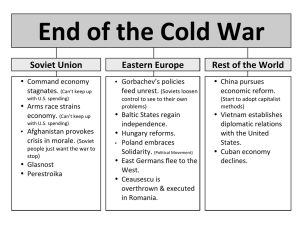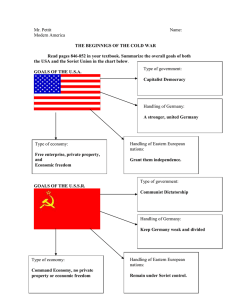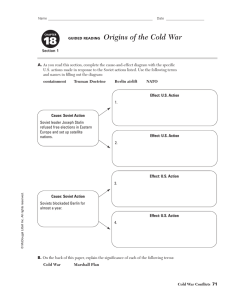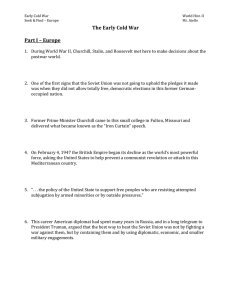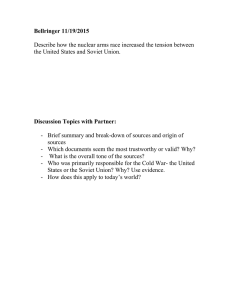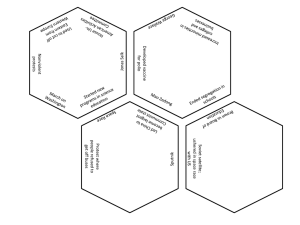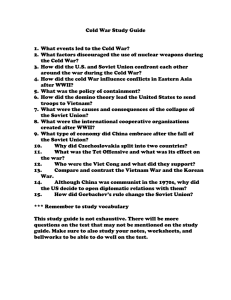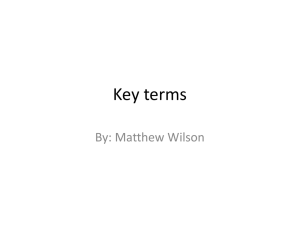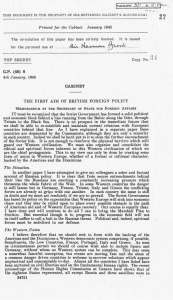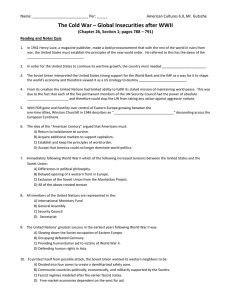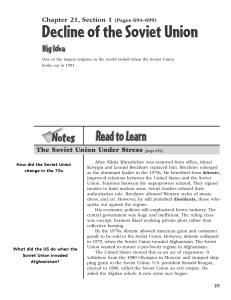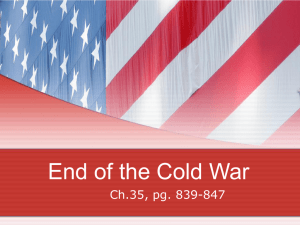Chapter 2 Vocabulary
advertisement
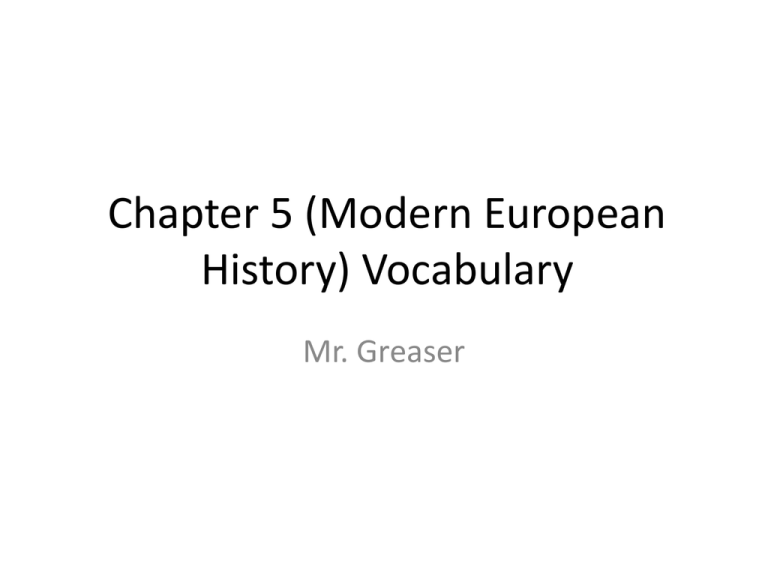
Chapter 5 (Modern European History) Vocabulary Mr. Greaser Productivity Measurement of the amount of work accomplished in a given time Textile Woven cloth Union Labor organization that negotiates for improved worker conditions and pay Strike Refusal to work, usually by a labor organization, until demands are met Imperialism System of building foreign empires for military and trade advantages Alliance Political agreement between countries to support each other in disputes with other countries Holocaust Mass killing of 6 million European Jews by Germany’s Nazi leaders during WWII Genocide Mass murder of people from a particular ethnic group Cold War Period from 1947 to 1991 when the U.S. and the Soviet Union engaged in a political struggle for world influence but did not fight each other Communism System of government in which the government controls the ways of producing goods Deterrence Maintenance of military power for the purpose of discouraging an attack Satellite Nation Nation politically and economically dominated or controlled by another more powerful country Blockade To forcibly prevent entry into an area Airlift System of carrying supplies by aircraft Glasnost Russian policy of “openness” which permitted Soviet people to criticize the government without punishment Perestroika Policy of economic restructuring in the Soviet Union that called for less government control of the economy Capitalism Economic system that allows private ownership and open competition of businesses European Union Trade alliance among many European countries Euro Common currency adopted by countries in the European Union
